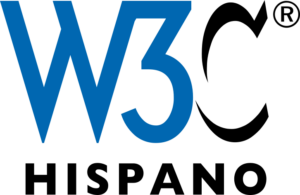In today's digital age, trust is a fundamental element for the proper functioning of societies and economies. However, traditional systems of trust, based on intermediaries and centralised processes, have limitations and vulnerabilities. This is where blockchain emerges, a disruptive technology that transforms the way trust is established in the digital environment.
What is blockchain?
Blockchain provides a distributed and immutable digital record that stores information securely and transparently. This technology functions as a public ledger where transactions are recorded chronologically and verifiably by all participants in the network.
Features
- Decentralisation: Information is not stored on a single centralised server, but is replicated to all nodes in the network. This makes it more resistant to manipulation and fraud.
- Immutability: Once a transaction is recorded on the blockchain, it cannot be modified or deleted. This guarantees the integrity of the data.
- Transparency: All transactions are visible to all network participants, which promotes auditing and traceability.
- Security: Blockchain technology uses advanced cryptography to protect data and ensure the security of transactions.
How does it work?
Blockchain works on the basis of the following steps:
- Creation of a transaction: A user initiates a transaction, such as a money transfer, or the recording of an important fact or data.
- Transaction verification: The transaction is transmitted to the network of nodes, where it is verified by the participants. If several nodes validate the same transaction, a consensus algorithm resolves who has the valid version.
- Adding the transaction to the block: The validated transaction is added to a block in the chain.
- Linking the block to the chain: Each new block is linked to the previous one, creating an immutable chain of data.
Applications
It has a wide field of application, improving processes in various sectors such as:
- Finance, for secure and transparent financial transactions, such as international payments or remittances.
- Supply chain management, to track the origin and movement of products, increasing efficiency and traceability. Digital identity, to create secure and verifiable digital identities, protecting user privacy.
- Electronic voting, for secure and transparent voting systems, reducing the risk of fraud.
- Health, to securely store and share medical records, modernising patient care.
CTIC and blockchain
Blockchain is a constantly evolving technology with enormous potential to transform various aspects of our lives. And at CTIC we have already successfully applied it in real cases that benefit companies and consumers, highlighting agri-food traceability (PDO Asturias Cider, Vega de Tordín PDO Cabrales Cheese Factory, KiwiNatur kiwi producer, etc.) among other fields.


